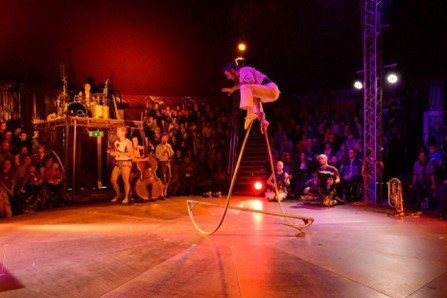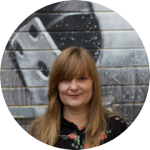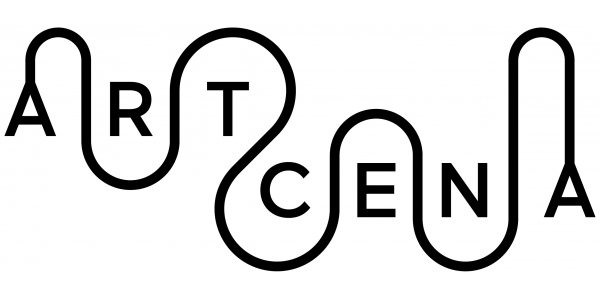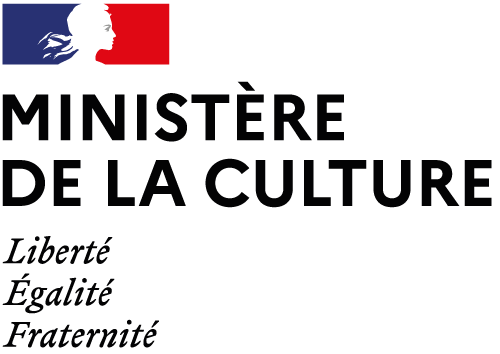What if we all stayed at home?
The circus artist is everywhere. They move for opportunities, for training, for work; at times it seems like the only way to survive. But is there another choice hidden in plain sight? Kiki Muukkonen, artistic director of Subtopia´s circus department and director of the festival CirkusMania in Sweden, digs into the topic of internationalism. The article was part of the FRESH CIRCUS #5 publication coordinated by Circostrada and edited by John Ellingsworth, in relation to the FRESH CIRCUS#5 – International Seminar for the Development of Contemporary Circus co-organised in October 2019 by Circostrada, ARTCENA, CIRCa - National Pole for Circus - Auch Gers Occitanie, La Villette, Espace Catastrophe/Festival UP!, Wallonie-Bruxelles Théâtre Danse in Auch, France.
Speaking of Swedish circus, two new members from Sweden have just joined the Circostrada network: Riksteatern co-organiser of CirkusExpo Sweden, of which the first edition was held between February 17-18, and Stockholm City Theatre.
Once upon a time, I was chatting with a juggler who had been elected laureate of circusnext, and offered him a residency in Stockholm. To my surprise, he answered that he would rather stay at home. Travelling shattered his mind, he said, and took focus away from his work. Residencies abroad were a waste of time. He asked me if there was any way I could help him find a residency close to his hometown instead.
I was baffled. I’d taken it for granted that we all see travelling as a privilege, something to long for. After all, circus is international by definition. We, the circus, are a community of travellers, always appearing in different geographical, artistic, social and cultural territories. We use international relations for our local development, and for our own personal and artistic growth. The market is international, and quite often funding is more easily accessible for international collaborations than for local ones. A side effect of working internationally is that we also become ‘famous’ at home, which brings its own opportunities.
Well, OK, this is not true in every case. For instance, French artists can tour mainly in France. They have their national poles, their programming networks and intermittence (and oh, how we envy them). But most other countries are a totally different story. In Sweden, for one, it is difficult for a circus company to survive without going international (unless, that is, they create children’s shows).

At FRESH CIRCUS I attended an artist talk with Circus I Love You, a circus company consisting of artists and producers mainly from Finland, France and Sweden. They spend a lot of time and money travelling. In their presentation, they said that their original vision was to tour a tent in the Nordic countries, the territories that were originally home for most of them. But Circus I Love You have made a deliberate decision not to be based in one place. Their ambition is to take a little of what’s available from many different places. Where they once grew up is not relevant to them anymore — they no longer have a place called home. ‘Home is where we had our last gig.’ Paradoxically, and probably quite annoyingly, they get invited to perform all over Europe — but not in the Nordic countries.
Even though one would think their multiculturality might bring some funding benefits, allowing them to apply for subvention in several countries, finding a sustainable economic model has been difficult for them. The dream they are pursuing is very expensive, and their touring creates a lot of problems. They have spent months studying EU documents, trying to understand how to tour their tent and truck throughout Europe in a legal manner — but wherever they turn they seem to get stuck in an administrative and bureaucratic mess. As one of the artists put it: ‘Circus is illegal everywhere. You will be employed to do dangerous things, and your employer could go to jail. Circus is a resistance against the system, just by its pure existence.’ Though not outspoken, it seems to me that, next to their most obvious motivation (the love of circus, naturally) the driving force for the company is exactly this spirit of resistance, of revolution. Circus I Love You are on a mission, and they never expected it to be easy.
‘Circus is a symbol of resistance.’ ‘Circus is a political counterforce in its essence.’ ‘Art is disruptive.’ ‘We can and must resist the forces of capitalistic cultural management.’
During the FRESH CIRCUS week, this is an idea I hear echoed repeatedly by different people from different contexts: ‘Circus is a symbol of resistance.’ ‘Circus is a political counterforce in its essence.’ ‘Art is disruptive.’ ‘We can and must resist the forces of capitalistic cultural management.’
But, as many companies find out, revolution has its price. And I’ll say this: it’s kind of expensive. It’s quite utopian to think we could have it all: the market, the money, and the revolution. The form of resistance many in the circus field have chosen — a revolution that requires constant travelling — also places other things at stake. When we are nomads, a reality for many of us in the circus, what happens to our sense of identity, our sense of connection? At a time when being brave has to be one of our most important qualities, how does that affect our art, dreams, relations, identities? Could our international work prevent the circus from growing a real relationship with its own territories?
With the memory of the travel-reluctant circusnext laurate firmly in mind, this leads me to another question: What if we all stayed at home?
‘Circus is everywhere’, the theme of FRESH CIRCUS#5, expresses quite a grand idea of omnipresence, and possibly also of us as missionaries and prophets of the circus. As we all know, being a prophet at home is the most difficult of tasks. And yet CIRCa, located in Auch, surrounded by the rural Gers region, has somehow succeeded. Every year, the international circus community makes its pilgrimage to this small town in the south of France, to see mainly French performances. It is amazing how scores of local volunteers take part in making the festival happen. As the mayor of Auch pointed out in his welcoming speech, art enhances the identity of a territory, and indeed circus has made Auch internationally famous. It is quite a miracle. At the same time, CIRCa is definitely a marketplace, and one that provides French artists with international work. Whether its existence constitutes some kind of resistance, however, whether it is somehow revolutionary in its local context — I don’t know, and I will leave that for the French to say.
The circus company Cirquons Flex from Réunion is an interesting example of local interculturality. Réunion is, at a fundamental level, an intercultural island. At FRESH CIRCUS the company explained their desire to create a circus closely related to their territory and identity. As the first professional circus company on the island, they found international cooperation was not an option but a necessity. If you want to be the first in your field, it’s good to be able to point to the successes of international friends. This is how the contemporary circus wave started in Sweden — and it’s also why the Swedish circus of today is totally intercultural. At the same time, Cirquons Flex say that you can only find a circus like theirs on Réunion — they even call it a ‘native’ circus. The local and international has become interwoven into an identity of its own. Whether Cirquons Flex’s existence is somehow revolutionary in its local context, I don’t know. I will leave that for the citizens of Réunion to say.
And yet my feeling is that if our revolution consists in creating a new (kind of) market, it is the audience who must be everywhere. Opening to local possibilities, we can dig where we stand, innovate where we already sit. For sure intercultural meetings, within and beyond Europe, develop us, open our minds, inspire us. I believe that dealing with intercultural friction makes us better people and helps us live together in this world. If we don’t meet, we can’t create or share our common dreams, create our common revolutions — but we should be open about what form they take. One evening in my hotel room in Auch I read a quote from Esteban Gonzáles Pons on this theme: ‘Europe is not a market, it is the will to live together… We can have a common market, but if we don’t have common dreams, we have nothing.’ And as one of the members of Cirquon Flex said at one of the FRESH CIRCUS seminars: ‘We need to build new stories for a new future: an inclusive narrative, a story about collaboration.’
Maybe circus, as I know it, needs to be disrupted — or will inevitably be. Working from our own corner of the world we might invent new models that reconcile the necessity of intercultural exchange with the necessity of a territory we can call our own
What, then, is our story? That’s not an easy question, but we could start by reimagining our internationalism. In the programme for FRESH CIRCUS it says that while circus can find a home anywhere, ‘the way it takes root differs depending on the areas and partnerships involved’. Taking root is the key to calling somewhere a home or territory. How much we can make the earth shake under our feet depends on how deep our roots are. It’s usually not the visitors who fly by and are gone the next day that make the real revolutions happen. On the other hand, if we are very deeply and firmly rooted, it becomes difficult to shake hard enough to stir the ground. We need contact with other territories, other identities, other artistic and cultural universes.
Today, I don’t necessarily regard travelling only as a privilege. Mobility has a price tag: it shatters my mind and affects my sense of identity and belonging — not to mention that it is not sustainable for the planet. However, I’m very pleased to have the intercultural knowledge and perspective I have gained over the years. Without it, the development of our art form would not have been possible. But now I want to run home to the circus. I want it to be possible to survive without constantly buying plane tickets. I want a real relationship with my territory. Maybe circus, as I know it, needs to be disrupted — or will inevitably be. Working from our own corner of the world we might invent new models that reconcile the necessity of intercultural exchange with the necessity of a territory we can call our own.
Just before leaving Auch, I met a colleague in the street. ‘Where are you going?’ He asked. ‘I’m just on my way home,’ I said. ‘Aha, and which hotel are you staying at?’ He asked in response. ‘No. I’m going home home — to Stockholm.’

Kiki Muukkonen is the artistic director of Subtobia circus art departement. She is responsible for national and international artistic programme, residences, projects of artistic development and international relationship. Since 2009, Kiki is producing Subcase festival. In 2019, she creat the festival CirkusMania.






write us: infocircostrada@artcena.fr